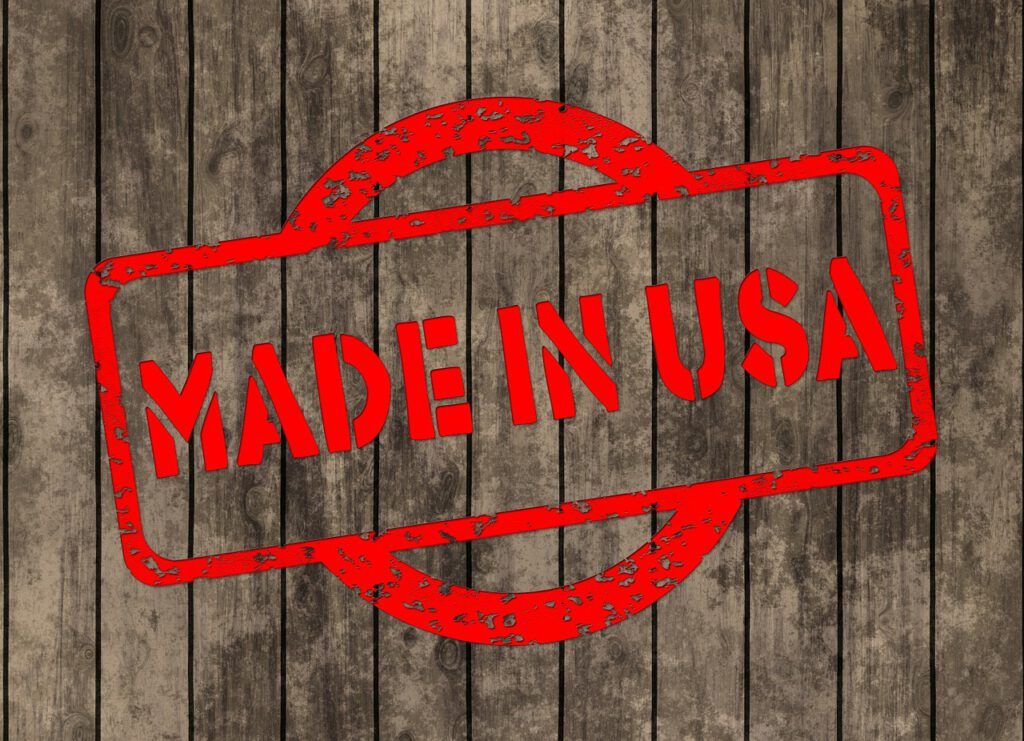It’s easy to say “buy American” simply from a patriotic impulse. But the truth is that the benefits of buying American—at least when it comes to purified cotton—can go far beyond the emotional appeal that comes with wearing your red, white, and blue inclinations on your sleeve. Buying cotton grown in the USA has many advantages for product developers, and we’ll discuss four today. Regular readers of this space won’t be surprised to find that that this conversation has to start with sustainability.
Simple Supply Chain
Cotton—especially U.S. cotton—has a ridiculously simple supply chain. The fiber is grown, harvested, and converted right here in America. We often compare homegrown cotton to synthetic fibers simply to show how it’s a more sustainable solution. But whenever multiple countries and continents are involved, sustainability is going to take a hit, and that’s even the case with cotton grown overseas. U.S. product developers buying homegrown cotton will ultimately use far less resources, and ensure a more responsible carbon footprint.
Every bale of cotton fiber that is grown in the U.S. is tested by the USDA for physical properties (micronaire, strength, uniformity, etc.) as well as amount of plant material present (trash) and fiber color. All of this information is provided with each bale.
Improved Farming Practices
Farmers don’t get nearly enough credit for the advances they’ve made in farming practices. Over the last 35 years, cotton production has been able to double while the amount of land devoted to growing it has been dramatically reduced. This shows a high commitment to soil conservation; in fact, over the last decade farmers have tilled less and grown more winter or cover crops. However, there have been reductions across the board: the use of pesticides, water, and production energy are also much lower today. These farmers, along with organizations like Cotton LEADS™, are committed to ethical growing practices and—as we mentioned above—a traceable supply chain.
Job Creation
Globalization has taken its toll on a variety of U.S. industries, so it should come as no surprise that this affects cotton, too. However, the math is simple: the more U.S. cotton that’s purchased equates to more farming jobs for a struggling agricultural industry. There are many farmers who have taken the cotton plunge, some even going as far to commit to the organic route. But without support from companies and manufacturers, it’s hard for them to survive. In that Rodale Institute article we linked to above, business owner Eric Henry lays out the challenge perfectly:
“People are taking advantage of not only growing the cotton, but keeping the cotton here,” says Henry. “That’s how it’s going to have an impact on jobs, rather than if we just grow the cotton and ship it overseas. Our biggest competition is price. Labor rates in Bangladesh are $0.55 an hour, versus $15 an hour here. Yes, it costs more, but we’re impacting hundreds of local jobs at the same time.”
Branding Potential
While the reasons preceding this one are certainly more impactful, from a product development standpoint it’s still important to consider the marketing potential of “Made in the USA.” Consumers respond to it, as evidenced by the rise of localvores. While that phrase typically refers to preferring food raised locally, it’s applicable to cotton crops as well. Consumers have become far more judicious, especially when it comes to products for personal care and baby care—even apparel. In today’s world, the Internet allows for meticulous vetting of products. While for some demographics your product must still be environmentally friendly and deliver high performance, the ability to add a “Made in the USA” label to packaging only enhances the product’s appeal.
The Choice Is Yours
A variety of factors go into choosing your cotton source. These are just a few reasons why buying American-grown cotton might make sense for your company, or your next product innovation. Every day, companies are being held to higher standards, environmentally and ethically. So when the need for purified cotton arises, the four reasons discussed here make a compelling case that you don’t have to look very far for the perfect solution.
Have you downloaded “Game Changers: 8 Cotton Products that Impacted the World” yet? When it comes to nonwoven innovations, some of the best products are also the simplest.
